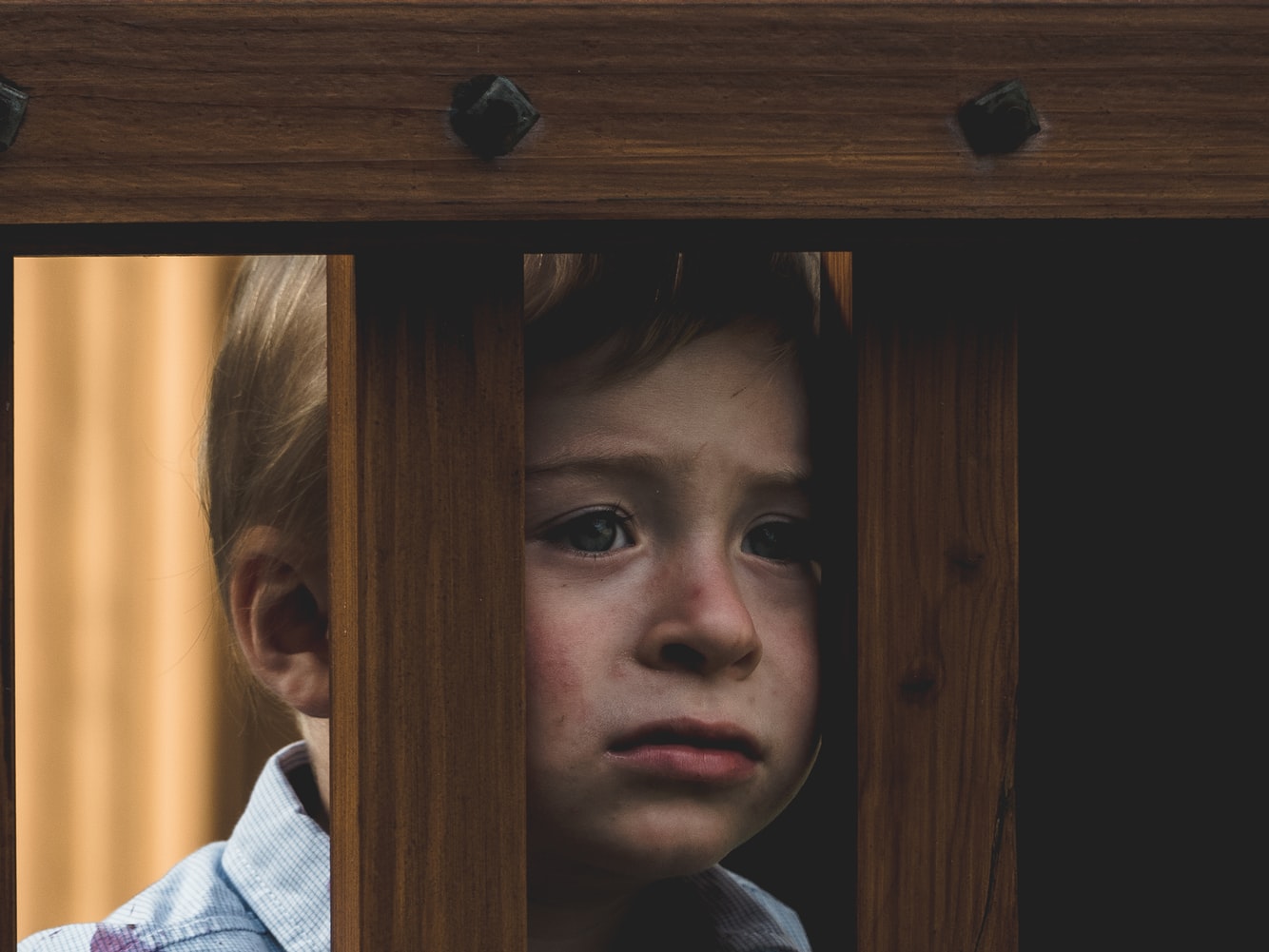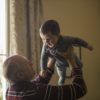Effect of Early Trauma to the Physical Body
“Traumatic experiences do leave traces, whether on a large scale (on our histories and cultures) or close to home, on our families, with dark secrets imperceptibly passed down through generations. They also leave traces on our minds and emotions, on our capacity for joy and intimacy, and even on our biology and immune systems.” The Body Keeps the Score by Bessel Van Der Kolk, MD, taken from the preface.
Some time ago, when Ron had been diagnosed with the dreaded Parkinson’s Disease, I read something that was a great surprise – that Parkinson’s is the result of early childhood rejection, in many cases. Now that was quite a shock, albeit, Ron could be the poster boy for rejection! Not long after that, and looking for some initial verification of this idea, I discovered a physician by the name of Dr. Vincent Feletti of San Diego area and the Kaiser Permanente Hospital. Because of experience in his own practice, Dr. Feletti, in cooperation with CDC, wrote a questionnaire, which was distributed to thousands. The results of the questionnaire revealed and corroborated Feletti’s hypothesis, that traumatic events in the lives of children, can and do produce physical ailments later in the lives of those children.
Many people can identify a person in their lives who struggles with a chronic illness like heart disease, diabetes, or hypertension. Most people also know someone who struggles with mental illness, substance abuse, or relationships in general. Traditionally, the health care system would point to high-risk behaviors such as poor diet, drug use, or a sedentary lifestyle as the primary causal factors. Questions for patients have focused on What’s wrong with you? rather than What happened to you? A 1998 study from the Centers for Disease Control and Prevention (CDC) and Kaiser Permanente is leading to a paradigm shift in the medical community’s approach to disease. This study of more than 17,000 middle-class Americans documented quite clearly that adverse childhood experiences (ACEs) can contribute significantly to negative adult physical and mental health outcomes and affect more than 60% of adults. This continues to be reaffirmed with more recent studies. Read the entire article here.
Many of us know that addictions originate from our inability to attach, in a whole and healthy manner, to the primary caregivers in our lives. Smoking, drugs, alcohol, workaholism, relationship addiction, hoarding, religious fanaticism, eating addictions and others are related to the emptiness left from childhood, and are attempts at filling the void with something – anything.
Dr. Feletti relates the story of one of his clients in his obesity clinic. She was a woman who came into the clinic weighing in the neighborhood of 400 pounds. Through his methods of weight reduction, she lost many pounds, down to 137 pounds. One day, at her job, she was propositioned by a fellow worker, and her weight began to climb again – up to over 400 pounds! She wrote a note just before her suicide, and left it behind. Among other things, it stated that she just couldn’t be without her protection, and that was her reason for re-gaining her obesity, and subsequently death by her own hand.
As Dr. Feletti studied further into the history of morbidly obese patients, he discovered that most had been sexually abused as children and had experienced a host of other family problems.
Research from the new sciences, such as: neuroscience, developmental psychopathology, and interpersonal neurobiology, reveal that trauma produces actual physiological changes, including a recalibration of the brain’s alarm system, an increase in stress hormone activity, and alterations in the system that filters relevant information from the irrelevant.
Martin Teicher, MD, PhD writes in the magazine, Scientific American:
Early maltreatment has enduring negative effects on brain development. Our brains are sculpted by our early experiences. Maltreatment is a chisel that shapes a brain to contend with strife, but at the cost of deep enduring wounds. Childhood abuse isn’t something you get over.It is an evil that we must acknowledge and confront if we aim to do anything about the unchecked cycle of violence in this country.
When one has a biological system that keeps pumping out stress hormones to deal with real or imagined stress, it leads to physical problems: Sleep disturbances, headaches, unexplained pain, and over sensitivity to touch or sounds. To relieve themselves, these people engage in chronic masturbation, rocking, biting, cutting, hitting or burning themselves, pulling out hair, or picking on their skin. Sexually abused girls mature sexually about a year and a half earlier than other girls. They have 3-5 times the levels of testosterone and androstenedione, the hormones that fuel sexual desire.
It has been suggested by some professionals, Dr. Feletti postulates, that morbid diseases such as Diabetes, Cancer, Heart Disease, High Blood Pressure, and neurological diseases are instigated and fueled by unresolved childhood traumas.
Another excellent reference is this video by Dr. Bruce Perry:
Actually, you can look up Dr. Bruce Perry on the web, and find many articles and videos of him speaking on the subject of trauma and its effect on the developing child and adult. The ACE study results, released in 1998, were staggering. The researchers admitted feeling “stunned.” For the first time, a study proved that childhood adversity can create an early process of inflammation and cellular aging that can, among other ill effects, shorten a lifespan by almost 20 years.
We learned that traumatic childhood experiences represent significant risk factors in adulthood for:
– alcoholism
– drug abuse
– depression
– attempted suicide
– smoking
– poor self-rated health
– sexual promiscuity and transmitted disease
– severe obesity
– ischemic heart disease
– cancer
– chronic lung disease
– skeletal fractures
– liver disease
– stroke
– diabetes
– autoimmune disease (such as lupus and multiple sclerosis)
– chronic fatigue syndrome
– peptic ulcers
Even when controlling for subjects who engage in high-risk activities like smoking, drinking, and overeating, childhood trauma produces the same increased risk for everyone. Across the board, for example, respondents had a 360% increase in risk for heart disease.
In the 15 years since the original ACE results were published, a slew of supporting studies have been conducted with similar conclusions about:
– chronic disease
– health-related quality of life
– Chronic Obstructive Pulmonary Disease
– frequent headaches
– depression
– hallucinations
– psychosis
– early death
With extensive data showing that childhood trauma rewires the mind and body, we must ask: Can it be rewired again—after trauma, before illness—to improve outcomes? Advancements in the field of neuroscience have taught us the vast opportunities found in rewiring entire mind and body systems, which opens the door for envisioning how we might reverse the ACE research in future generations.
Taken from an article by Michele Rosenthal is an award-winning blogger, award-nominated author, award-winning mental health advocate, certified professional coach and the founder of HealMyPTSD.com.
Considering what you have read here, would you not think it wise to choose to recover from the early wounds you may have experienced? Recovery is possible, and it will set you up to no longer live in the shadow of the trauma you experienced as a child, to be free from the prison house of your mind, and to live a love, peace and joy-filled life. Think about reading about rejection, its causes, manifestations and healing in the book Shadows of Belonging. All of the abuses we receive, create feelings of rejection within us. Shadows of Belonging discusses Attachment, and the lack of it and its repercussions. A workbook for your introspection and understanding is also available.
In the next article in this series we will focus of the Emotional results of Early Childhood Trauma.



